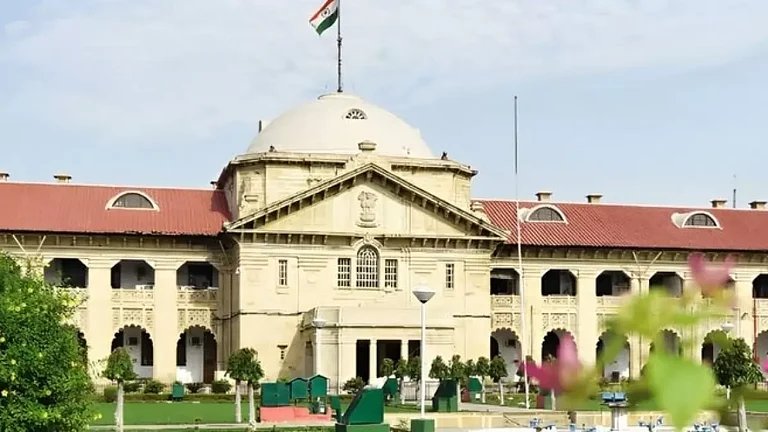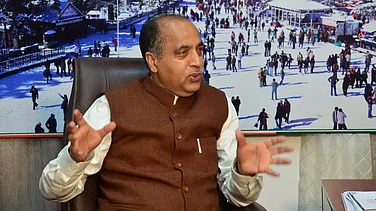The Supreme Court on Thursday overturned its 2018 ruling which stated that civil and criminal cases with an order of stay will automatically have the stay lifted after a period of six months.
The bench including justices D Y Chandrachud, Abhay S Oka, J B Pardiwala, Pankaj Mithal and Manoj Misra, agreed that courts should not have a time-bound schedule for disposal of cases pending.
“A direction that all interim orders of stay of proceedings passed by every High Court automatically expires only by reason of lapse of time cannot be issued in exercise of jurisdiction of this court under Article 142 (ensuring complete justice) of the Constitution of India,” the bench stated referring to the court’s judgement in the Asian Resurfacing of Road Agency P. Ltd. Director V. Central Bureau of Investigation case.
What is the Asian Resurfacing of Road Agency P. Ltd. Director V. Central Bureau of Investigation case?
In 2018, a three-judge-bench including Justices A K Goel, Navin Sinha and RF Nariman had directed that any ongoing cases with a stay on the trial will automatically have the stay lifted in six months to ensure that the civil or criminal proceedings do not remain pending for unduly period at the trial stage. The court was concerned that allowing indefinite stays could lead to prolonged litigation.
The bench had stated (in para 36), “…in all pending cases where stay against proceedings of a civil or criminal trial is operating, the same will come to an end on expiry of six months from today unless in an exceptional case by a speaking order such stay is extended. In cases where stay is granted in future, the same will end on expiry of six months from the date of such order unless similar extension is granted by a speaking order. The speaking order must show that the case was of such exceptional nature that continuing the stay is more important than having the trial finalised.”
In para 37, it said, “the High Courts may also issue instructions to this effect and monitor the same so that civil or criminal proceedings do not remain pending for unduly period at the trial stage.”
What is a stay order?
A stay order refers to the act of temporarily stopping or postponing any judicial proceeding through the court or legal authorities in India to secure the rights of a citizen.
It can be issued by a court to prevent one party from taking a particular action until the court has had an opportunity to hear further arguments or make a final decision on the matter.
SC’s decision to overturn the 2018 ruling
Justice Oka said, “We have held that we don’t agree with the view propounded by the three-judge bench in the case Asian Resurfacing of Road Agency Pvt Ltd & Anr vs. Central Bureau of Investigation.”
The bench stated that there could not be an automatic vacation of stay.
“We framed two questions. Whether this court in exercises of its jurisdiction under Article 142 of the Constitution can order automatic vacation of all interim orders of the High Courts of staying civil and criminal cases on the expiry of certain period, whether this court in exercise of its jurisdiction under Article 142 can direct the High Courts to decide the pending cases in which interim orders of stay of proceedings has been granted on a day-to-day basis and within a fixed period?”
The bench further added that it was unable to “concur with the directions” issued in paragraphs 36 and 37 of the 2018 SC ruling.
The Constitution bench, after hearing arguments from Senior Advocates Rakesh Dwivedi, Vijay Hansaria, Solicitor General Tushar Mehta, and advocates Mahfooz Nazki and Amit Pai, had on December 13, reserved its judgement in the petitions filed by the High Court Bar Association Allahabad and others.
During the hearing, the bench noted two issues with the automatic vacation of stay orders. Firstly, it prejudiced litigants regardless of their conduct and secondly that the vacation of a stay order was a judicial act, not an administrative one.
Dwivedi in his arguments had highlighted the lack of thoughtful consideration in automatically vacating a stay order. The stay orders were being passed without considering the specifics of each case, which he argued was crucial for fair judicial decisions. He also added that delays in legal proceedings were often exacerbated when accused individuals secure interim orders, exploiting the situation.
Mehta agreed with Dwivedi, emphasising that the judicial discretion of high courts should not be restricted by a judicial or continuing “mandamus”.


















.png?w=200&auto=format%2Ccompress&fit=max)







